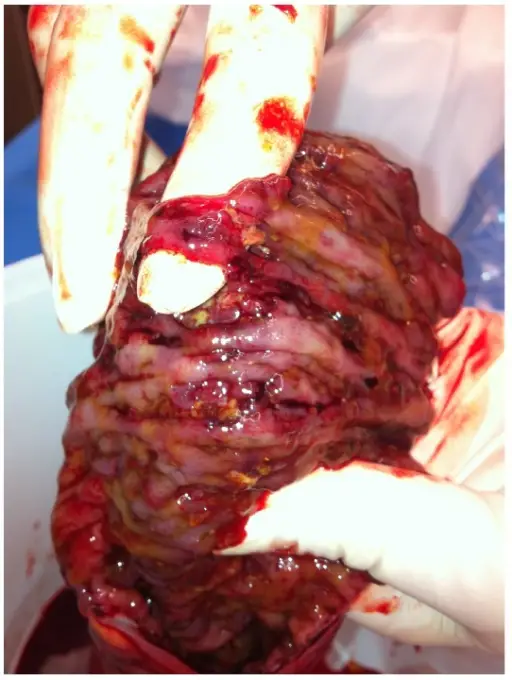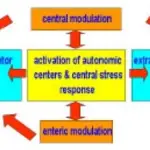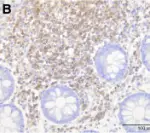Infectious enterocolitis is bowel inflammation caused by bacteria, viruses, or parasites. A key radiologic feature of infectious enterocolitis is the distribution of inflammation produced by the offending organism.
What is the Pathology of Infectious Enterocolitis?
The pathology of infectious enterocolitis is:
-Etiology: The cause of infectious enterocolitis is food poisoning. You can get it after ingesting food or water that is contaminated with bacteria.
-Genes involved: None.
-Pathogenesis: The sequence of events that lead to infectious enterocolitis are: direct bacterial or indirect bacterial toxin invasion of the colonic mucosa, leading to toxicity, volume loss, hemorrhage, and colonic inflammation.
-Histology: The histology associated with infectious enterocolitis shows immune cells in the lining of the tissue.
How does Infectious Enterocolitis Present?
Patients with infectious enterocolitis typically in all genders at any age. The symptoms, features, and clinical findings associated with infectious enterocolitis include: cramps and bloating, the urge to use the bathroom more frequently, watery diarrhea, fever, tiredness.
How is Infectious Enterocolitis Diagnosed?
Infectious enterocolitis is diagnosed by fever and/or dysentery, stools containing inflammatory markers such as leukocytes, lactoferrin, or calprotectin, or positive stool culture for an invasive or inflammatory bacterial enteropathogen including Shigella, and Salmonella.
How is Infectious Enterocolitis Treated?
Infectious enterocolitis is treated by therapy of broad-spectrum antibiotics and IV fluid resuscitation.
What is the Prognosis of Infectious Enterocolitis?
The prognosis of infectious enterocolitis is good. For most people, symptoms go away within a few days. Recovery can take two to three weeks in more severe cases depending on the cause.



